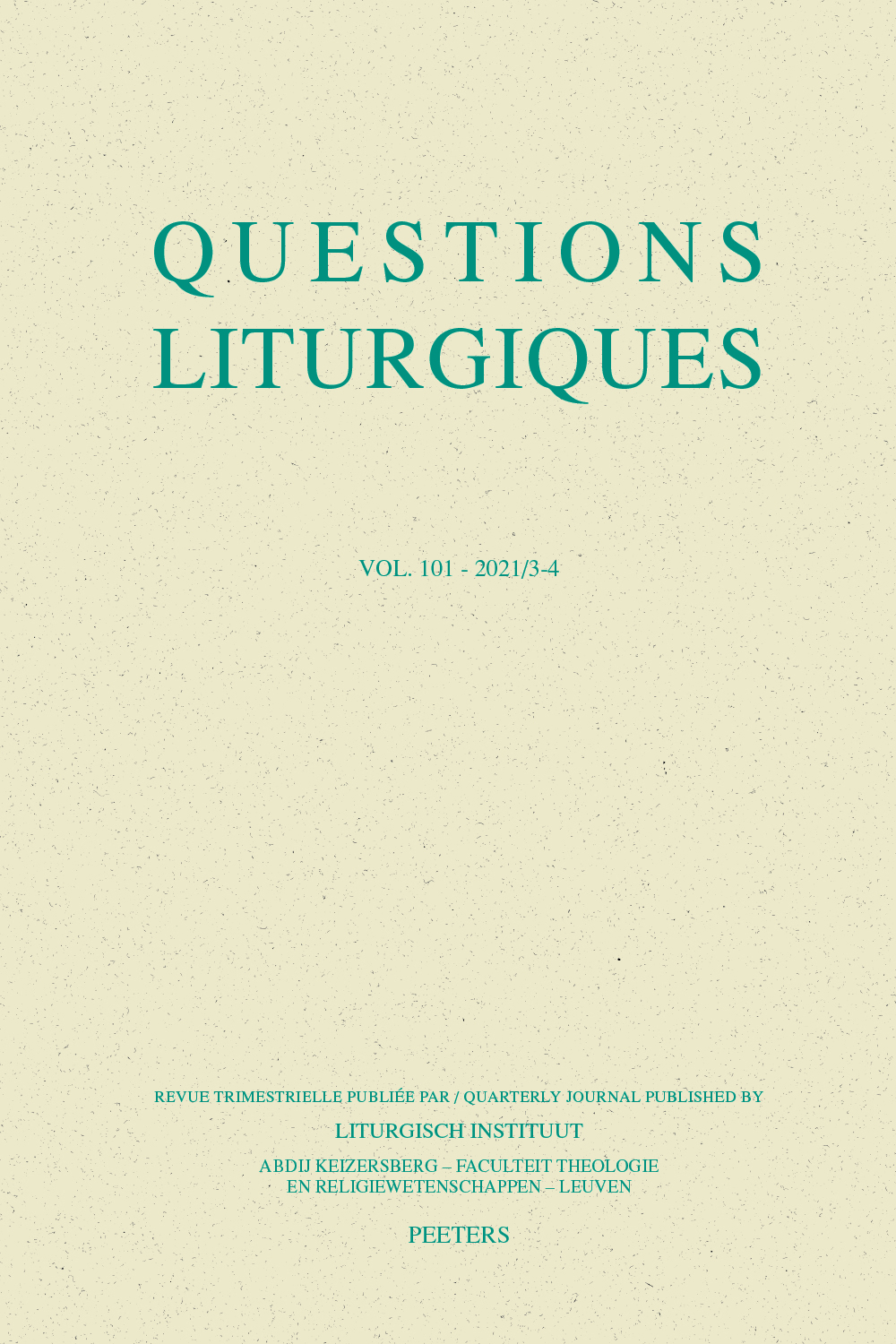next article in this issue  |

Preview first page |
Document Details : Title: The Paschal Disputes and the Fourth Gospel Passion Chronology Author(s): KARAKASIDIS, George Journal: Questions Liturgiques/Studies in Liturgy Volume: 102 Issue: 3-4 Date: 2022 Pages: 145-167 DOI: 10.2143/QL.102.3.3291358 Abstract : During the course of the modern era, liturgical scholars have demonstrated the extensive diversity in early Christian tradition. This diversity can, however, lead to liturgical disputes. Of significant note in this context are the Paschal disputes of the second century CE. Our major source of knowledge for the Paschal disputes is from Eusebius; other sources such as the Epistula Apostolorum, the Gospel of Peter, the Didascalia Apostolorum, and the Paschal homily Peri Pascha offer insights into the liturgical character of the 'Quartodeciman' tradition, which Eusebius contrasts with the prevailing 'Sunday' tradition. While these sources may offer scholars insights into the various streams of the Quartodeciman tradition, we nevertheless note fundamental inconsistencies between these sources when critically compared against Eusebius’s data. Thus, my purpose here is to critically discuss the coherence between these sources against Eusebius’s data, to determine if Eusebius’s data offer criterion for an additional interpretative method that may lend further insight into the diverse liturgy of the Quartodeciman tradition, particularly for the tradition of Polycarp and Polycrates. The criterion evident from Eusebius’s data does in fact offer scholars and historians an additional interpretative method that may be demonstrated through an alternate interpretation of the Fourth Gospel Passion Chronology. Au cours de notre époque, les spécialistes de la liturgie ont démontré la grande diversité de la tradition chrétienne primitive. Cette diversité peut, cependant, conduire à des disputes liturgiques. Dans ce contexte, les disputes pascales du deuxième siècle sont particulièrement importantes. Notre principale source de connaissances sur les disputes pascales est Eusèbe; d’autres sources telles que l’Epistula Apostolorum, l’Évangile de Pierre, la Didascalia Apostolorum et l’homélie pascale Peri Pascha offrent un aperçu du caractère liturgique de la tradition «Quartodécimaine», qu’Eusèbe oppose à la tradition dominante «Dominicale». Si ces sources peuvent offrir aux chercheurs un aperçu des différents courants de la tradition quartodécimaine, nous constatons néanmoins des incohérences fondamentales entre ces sources lorsqu’elles sont comparées de manière critique aux données d’Eusèbe. Ainsi, mon objectif ici est de discuter de manière critique la cohérence entre ces sources par rapport aux données d’Eusèbe, afin de déterminer si les données d’Eusèbe offrent un critère pour une méthode d’interprétation supplémentaire qui pourrait apporter un éclairage supplémentaire sur la liturgie diverse de la tradition quartodécimaine, en particulier pour la tradition de Polycarpe et Polycrate. Le critère évident des données d’Eusèbe offre en fait aux chercheurs et aux historiens une méthode d’interprétation supplémentaire qui peut être démontrée par une interprétation alternative de la chronologie de la Passion du Quatrième Évangile. |
|


